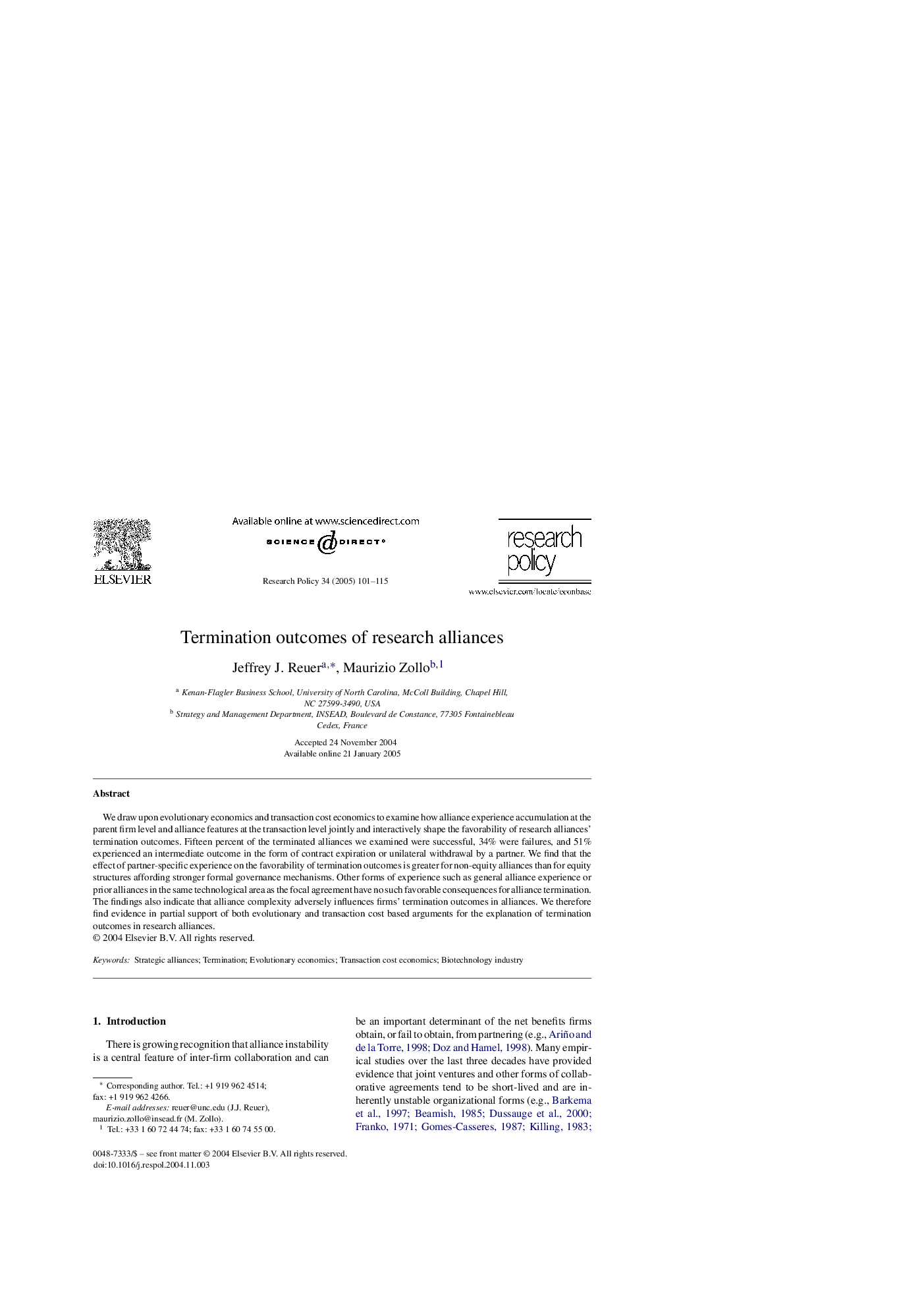| Article ID | Journal | Published Year | Pages | File Type |
|---|---|---|---|---|
| 10483439 | Research Policy | 2005 | 15 Pages |
Abstract
We draw upon evolutionary economics and transaction cost economics to examine how alliance experience accumulation at the parent firm level and alliance features at the transaction level jointly and interactively shape the favorability of research alliances' termination outcomes. Fifteen percent of the terminated alliances we examined were successful, 34% were failures, and 51% experienced an intermediate outcome in the form of contract expiration or unilateral withdrawal by a partner. We find that the effect of partner-specific experience on the favorability of termination outcomes is greater for non-equity alliances than for equity structures affording stronger formal governance mechanisms. Other forms of experience such as general alliance experience or prior alliances in the same technological area as the focal agreement have no such favorable consequences for alliance termination. The findings also indicate that alliance complexity adversely influences firms' termination outcomes in alliances. We therefore find evidence in partial support of both evolutionary and transaction cost based arguments for the explanation of termination outcomes in research alliances.
Keywords
Related Topics
Social Sciences and Humanities
Business, Management and Accounting
Business and International Management
Authors
Jeffrey J. Reuer, Maurizio Zollo,
